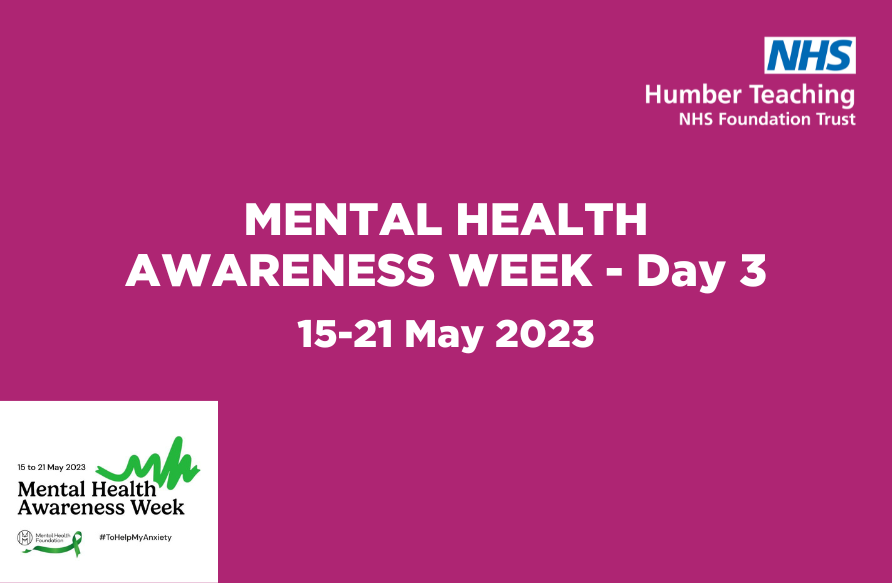Day 3 - Mental Health Awareness Week 2023 - Social Anxiety Disorder
Published: 17 May 2023 to 31 December 2098

Social Anxiety Disorder
Social anxiety disorder is one of the most common and persistent anxiety disorders with a typical onset during childhood and adolescence1. It can exist in isolation but commonly occurs with other anxiety and depressive disorders. It is more than shyness and is characterised by excessive fear or anxiety in one or more social situations and has a significant impact on everyday activities. Around only half of those with the disorder seek treatment and many of those who do will have typically lived with their distressing symptoms for between 15-20 years1.
You may have social anxiety disorder if you:
- worry about day-to-day activities such as speaking on the phone, starting conversations, eating or drinking in front of others or public speaking.
- regularly avoid social situations or endure them with extreme anxiety.
- are fearful about doing something you think is embarrassing in social situations such as blushing or sweating.
- fear being criticised or judged by others.
- have physical symptoms such as sweating, feeling sick, breathing faster, or a pounding heartbeat.
Things you can try
Self-help can reduce some symptoms; the following tips may help:
- Gain an understanding of your own symptoms of anxiety in social situations. A useful way to do this is to write down what goes through your mind when you begin to feel anxious.
- Make a note of how you behave when you begin to feel anxious, for example do you cancel plans or do you find ways to distract yourself to reduce your anxiety.
- Set yourself some specific realistic goals that are relevant and important to you. Break these down into smaller parts and focus on one bit at a time.
- In social situations try to focus on what people are saying rather than assuming the worst.
- Visit Every Mind Matters - NHS (www.nhs.uk)
Treatment for social anxiety disorder
Cognitive Behavioural Therapy (CBT) is a talking therapy that is a recommended treatment for social anxiety disorder1. It is a short-term therapy which looks at the interactions between our thoughts, feeling and behaviours and looks at ways to develop skills to build greater flexibility in our thinking to enable us to start to change what we do and to manage our emotions in a positive way. CBT is usually offered weekly with sessions lasting around 50 minutes
How to access CBT
You can refer to East Riding Emotional Wellbeing Service (changing to NHS East Riding Talking Therapies) via the following options:
- Online: by visiting https://iaptportal.co.uk/erew.html
- Phone: Self-refer by calling 01482 335451 Our team is available from 8am – 6pm, Monday to Friday.
- Text:Text talk to 60163, this will send you a link to the website.
- Email: HNF-TR.SelfReferral@nhs.net
- GP referral:You can speak to your GP who can make a referral into the service.
1https://www.nice.org.uk/guidance/cg159/chapter/introduction
- Summary:
Click the banner to read more about Social Anxiety Disorder on Day 3 of Mental Health Awareness Week 2023 (15-21 May)
- Category:









